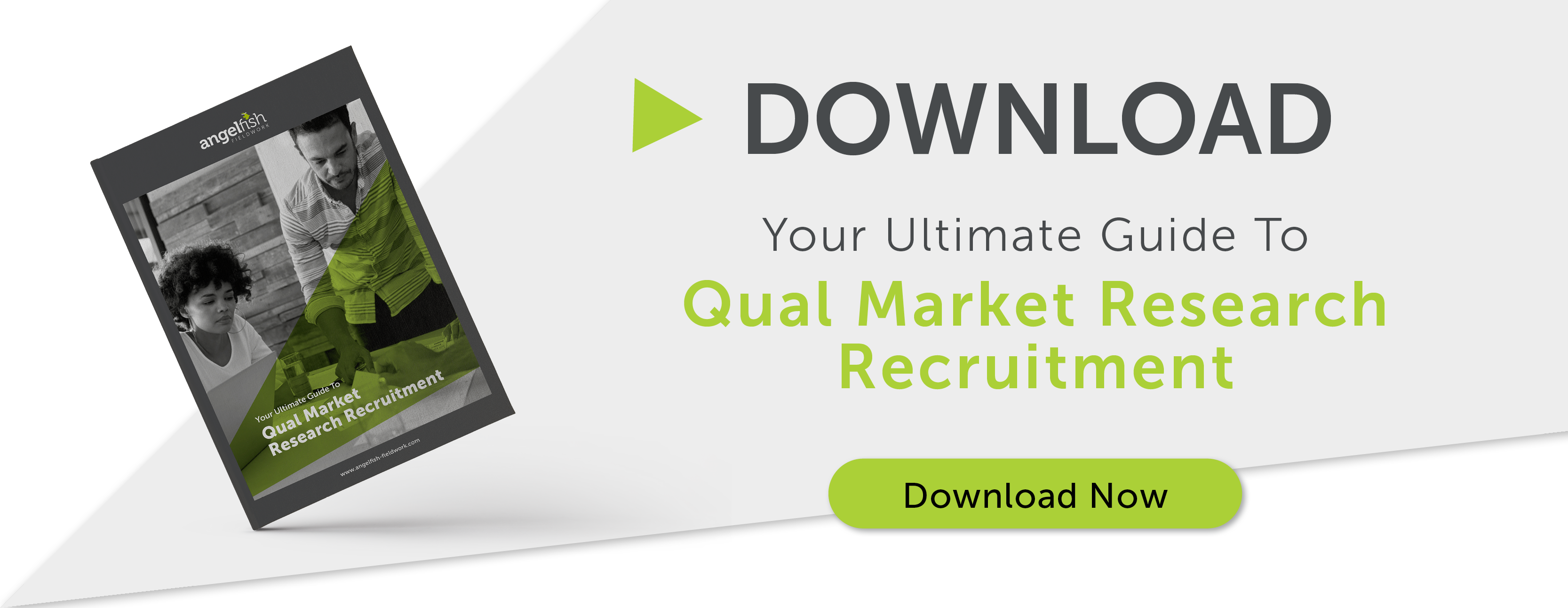
Six things to consider before choosing market research incentives
The Market Research Society describes an incentive as “any benefit offered to respondents to encourage participation in a project.”
Market research incentives are valuable tools to help maximise participation in your research project, providing greater motivation to the individual for taking part!
If you are trying to decide what incentives to offer as part of your upcoming market research project, be sure to consider the next six things first...
6 considerations to make when choosing market research incentives:
1. The kind of respondents you’re recruiting
Firstly, you’ll need to think about the “type” of respondent you’re recruiting for your market research. Different groups of people will expect and need different incentives to get them interested and give them an idea of what to expect. The more carefully you take your respondent types into account, the better you’ll aid the recruitment process!
Here are some common examples:
- Senior business professionals or participants of the same level of affluence are likely to have limited time on their hands and will expect a higher incentive. You should also do some research to check if these professionals charge any fees/hourly rates for their participation, so you can be sure that you match their expectations.
- If you are looking at a niche or hard to reach audience, you might need to consider a higher incentive than you would otherwise. This will help you boost interest and aid the recruitment process.
- In this case, you have two different kinds of participant in one go! Not only that, you’ll also need to take the age of the children in your research into consideration. For example, a 12-year-old might not appreciate a toy shop voucher in the same way a five-year-old will!
The usual expectation is that the parent will be paid the incentive to then share with their child, so in this case, keep both of them in mind when making your decision. Ultimately however, you’ll need to take into account that you’ll be paying two people for their time as opposed to just one, so be sure to keep this in mind.

2. Your chosen methodology
The market research methodology you choose will have a big impact on your incentive choices too. You’ll not only have to factor in how much time you expect respondents to spend on any given task, but also the type of task or commitment you’re asking of them.
For example, will your methodology require the use of technology, such as wearable gadgets or video (some participants may not wish to appear on video)? Or is the research more of a sensitive or personal nature?
The more demanding the research is, the higher your market research incentive will need to be to keep your participants motivated or interested.
Consider these:
- If it’s a face-to-face methodology - factor in travel time and perhaps travel costs in addition to the session itself.
- If there are pre-tasks that include buying products, you need to factor in time and reimbursement costs to cover the purchase.
What’s more, for online communities, or projects with multiple phases, it works well to:
- Have a tiered/staggered payment of incentives
-
- For example, if you are doing a six-month community, you may have a total incentive amount per person that you pay in increments, starting with the smallest amount and increasing it as time goes on, with a bonus for full completion. This is a great way to boost engagement and minimise dropouts!
- For example, if you are doing a six-month community, you may have a total incentive amount per person that you pay in increments, starting with the smallest amount and increasing it as time goes on, with a bonus for full completion. This is a great way to boost engagement and minimise dropouts!
- Offer bonus prizes in addition to starting incentives
-
- For example, prizes for the best creative content on communities can work well to increase respondent effort
- For example, prizes for the best creative content on communities can work well to increase respondent effort
- State up front that people must hit a certain task completion % to receive the incentive
-
- This way, if your participant doesn’t complete the tasks required, you’ll be within your rights to state they do not get an incentive as they have not met the agreed requirements. The key here is to be transparent up front in order to avoid angry respondents (more on that below)!
3. The kind of incentives you can offer
It’s worth thinking about the type of incentive that will attract the audience you’re looking for.
For example, B2B respondents may prefer a cash or BACs incentive, whereas other participants may not be comfortable giving out their bank details.
The good news is that there’s a wide range of vouchers on offer out there, and many participants are open to this as an incentive for both online and face-to-face research participation.
4. Ethical considerations
When choosing a market research incentive, it’s imperative that you follow the MRS Code of Conduct.
Ultimately, your incentive should be fair and proportionate to the requirements of the research, and you will also need to avoid:
Sugging: Selling under the guise of research, and
Frugging: Fundraising under the guise of research
Essentially, you can’t offer money-off vouchers for the brand you are researching (as this still requires participants to spend their own money to get the reward), and you cannot give specific gift cards/vouchers for the brand being researched.

5. Transparency
From a recruitment perspective, your agreed incentive amount, incentive type and incentive payment terms need to be crystal clear from the beginning and must be met once agreed.
After all, it’s better for someone to opt out of taking part in research up front if they are unhappy with the incentive, as opposed to completing the research having understood something completely different about the payment terms!
Some things to bear in mind:
- If you are conducting multi-stage research, or people are getting paid different amounts for different tasks, ensure this is communicated clearly and transparently to avoid upsets and complaints
- If changes to incentives are made during research – for example, following tweaks to your methodology – make sure this is communicated as quickly to respondents as possible
- If an incentive is agreed with a respondent and they have already completed the task as outlined, it cannot be changed or lowered after the fact.
- Every respondent in a group face-to-face research setting should receive the same incentive value
6. Logistical considerations
As you approach the end of/complete your market research, you’ll need to think about how to pay your chosen incentive, and what you need to prepare to facilitate this.
Whether this involves withdrawing and packaging up cash, collecting bank details (securely), pre-ordering vouchers or a different method entirely, it's always best to think ahead - especially as respondents will expect to be paid within the timeframes you’ve outlined!
Some other important things to bear in mind:
- Changing a brief after you have agreed this with a market research recruitment company may impact your incentive levels and final costs
- The late cancelation of an interview or session with less than 24-48 hours' notice will likely mean paying a cancellation incentive to the respondent
- If you’re using over-recruits, you’ll still be required to pay them the agreed incentive if you decide you no longer need them at the last minute
Ultimately, your chosen incentive will have a direct impact on recruitment success – so It's important that you get it right!
At Angelfish, we are often asked by our clients what market research incentive we think will be the best fit for their research – and we’re always glad to offer an answer in line with our knowledge and experience in the sector!
We’re also glad to share other expert tips and tricks when it comes to market research recruitment with our collection of helpful resources – starting with Your Ultimate Guide to Recruitment in Qualitative Market Research, which you can download below:
Enjoyed this article? Here are some other resources you might like:
Market Research Recruitment – Angelfish Marketing
Five tips for incentivising children in qual market research
How technology is changing market research
Face to face or remote user testing: which is right for you?
Respondent engagement: six simple ways to get the results you need
Your go-to task idea guide for market research online communities
Six common mistakes in online qualitative research - and how to avoid them
Back to basics: everything you need to know about GDPR in market research
The importance of over-recruiting your focus group respondents














